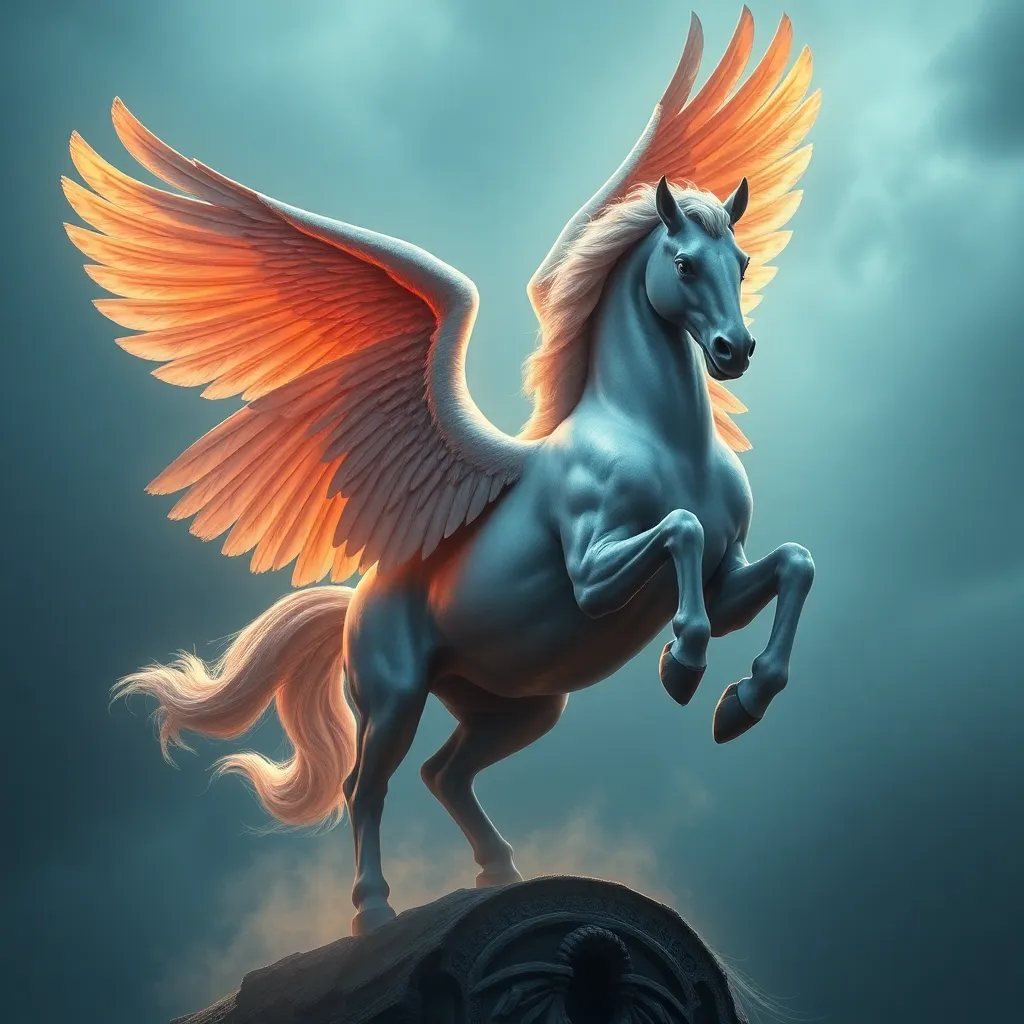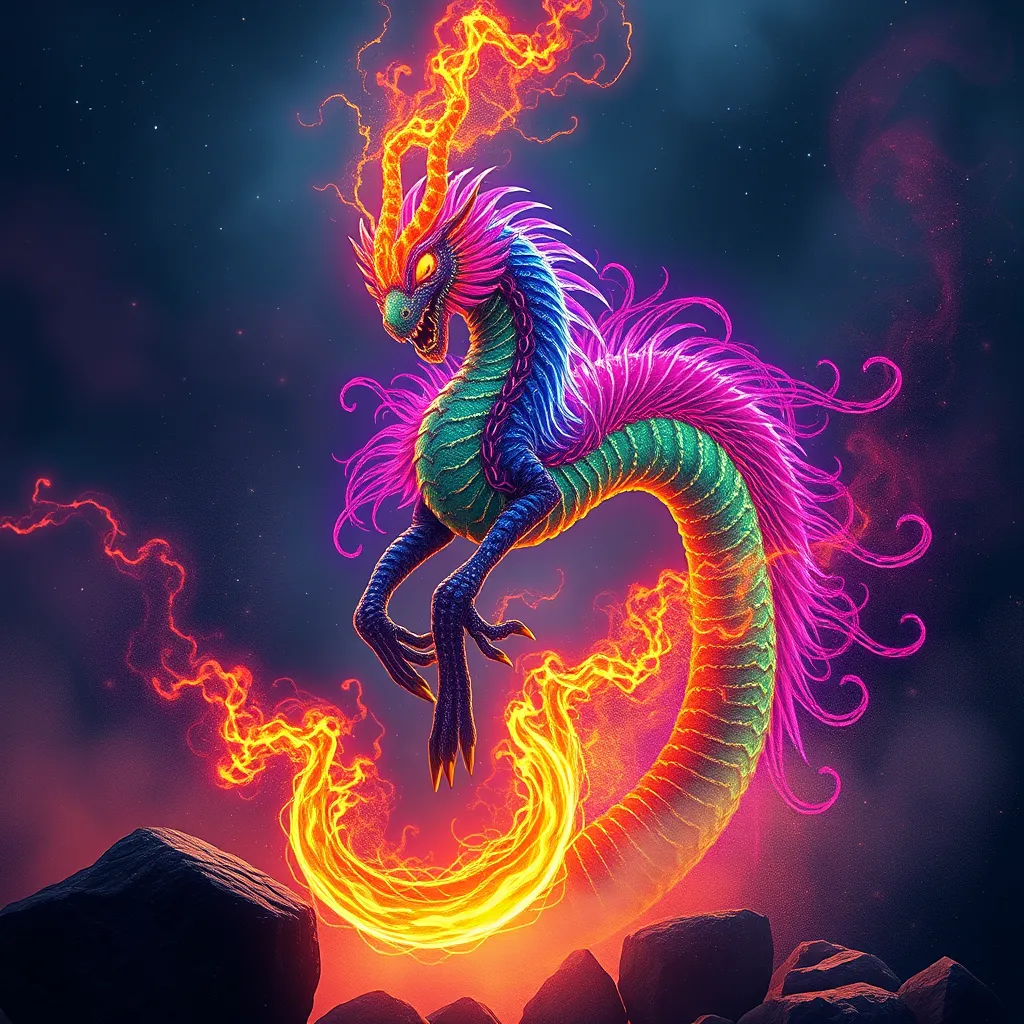From Perseus to Bellerophon: Exploring Pegasus’ Role in Greek Hero Tales
I. Introduction
In the vast landscape of Greek mythology, few creatures are as iconic as Pegasus, the winged horse born from the blood of the Gorgon Medusa. Pegasus transcends mere myth; he embodies the spirit of heroism and serves as a symbol of inspiration. This article delves into Pegasus’ significant role in the narratives of legendary heroes, particularly focusing on the tales of Perseus and Bellerophon. By examining these connections, we can better understand how Pegasus contributes to the broader tapestry of Greek mythology.
II. The Mythological Origins of Pegasus
Pegasus’ origins are as dramatic as his later exploits. He sprang forth from the blood of Medusa when she was slain by Perseus. This birth is not only a fascinating mythological event but also rich in symbolism:
- Birth from Blood: Pegasus’ emergence from Medusa’s blood signifies the intertwining of beauty and terror in Greek mythology.
- Symbolism: In ancient Greek culture, Pegasus represents inspiration and the heights of artistic achievement.
- Connection to the Muses: Pegasus is often associated with the Muses, the goddesses of the arts, symbolizing the idea that inspiration often comes from tumultuous beginnings.
III. Pegasus and Perseus: A Hero’s Companion
The relationship between Perseus and Pegasus is one of mutual benefit. Perseus, known for his bravery and cunning, embarked on a quest to slay Medusa, a task that would require not only strength but also intelligence.
During his quest, Pegasus plays a crucial role:
- Assistance in the Quest: After slaying Medusa, Perseus rides Pegasus to escape from the Gorgons, showcasing the horse’s loyalty and speed.
- Symbol of Triumph: The successful slaying of Medusa and the subsequent adventures of Perseus act as a testament to the bond between hero and mythical creature.
This relationship highlights a deeper narrative: the collaboration between man and beast in the pursuit of glory and justice, underscoring the hero’s journey.
IV. The Transition to Bellerophon
As Perseus’ story concludes, the narrative shifts to another hero: Bellerophon. Known for his noble qualities and adventurous spirit, Bellerophon’s tale is heavily intertwined with that of Pegasus.
The significance of Pegasus in Bellerophon’s journey cannot be overstated:
- Heroic Qualities: Bellerophon is characterized by his bravery and determination, often compared to Perseus.
- The Chimera: One of Bellerophon’s most famous exploits is his battle against the Chimera, a monstrous creature. Riding Pegasus, he soars above the beast, signifying the triumph of good over evil.
- Combat with the Amazons: Pegasus also aids Bellerophon in his battles against the Amazons, showcasing the horse’s versatility and power.
V. The Symbolism of Pegasus in Heroic Narratives
In examining the tales of both Perseus and Bellerophon, Pegasus emerges as a powerful symbol:
- Inspiration and Victory: Pegasus represents the heights of aspiration, embodying the idea that success is often rooted in divine inspiration.
- Transformation: The evolution of Pegasus from a wild beast to a noble steed reflects the transformation of chaos into order, a key theme in Greek heroism.
- Heroism Reimagined: The bond between Pegasus and his riders implies that heroism often requires companionship, emphasizing the importance of allies in overcoming challenges.
VI. Comparative Analysis: Perseus and Bellerophon
Perseus and Bellerophon, while distinct in their own narratives, share several similarities and differences:
- Similar Quests: Both heroes embark on dangerous quests, facing formidable adversaries and requiring courage and skill.
- Different Relationships with Pegasus: While Perseus rides Pegasus as a companion in his flight from danger, Bellerophon establishes a more symbiotic relationship, relying on the horse’s strength in battle.
- Evolving Hero Archetype: Bellerophon represents an evolution of the hero archetype, reflecting changing values in Greek society.
VII. Legacy of Pegasus in Later Literature and Culture
The influence of Pegasus extends beyond Greek mythology into Roman and later literatures:
- Influence on Roman Mythology: Pegasus was adopted into Roman tales, where he continued to symbolize inspiration and artistic achievement.
- Art and Literature: Throughout history, Pegasus has been depicted in countless artworks, poems, and stories, reinforcing his status as a timeless symbol of heroism.
- Modern Media: Today, Pegasus appears in films, books, and even video games, demonstrating the enduring relevance of his myth in contemporary storytelling.
VIII. Conclusion
Throughout the tales of Perseus and Bellerophon, Pegasus stands as a testament to the intertwining of myth and heroism. His role as a companion to these two legendary figures illustrates the profound connections between heroes and their allegorical beasts. The enduring appeal of Pegasus not only highlights the importance of inspiration and the hero’s journey but also invites us to explore deeper connections within mythology and literature.
As we reflect on the legacy of Pegasus, we are reminded that heroism takes many forms, and sometimes, it is the bonds we forge that elevate our stories to greatness.



